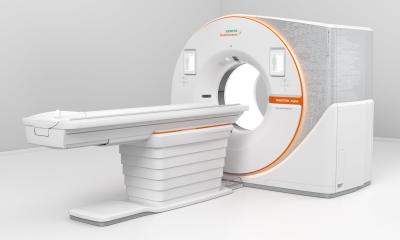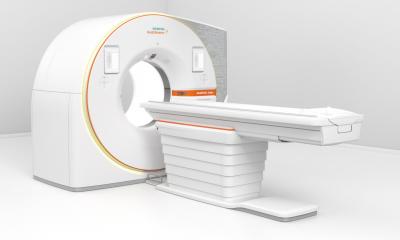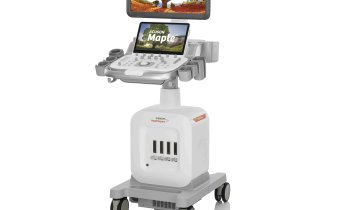The European Institute of Molecular Imaging
Siemens is participating in the foundation of the first European Institute of Molecular Imaging (EIMI) at the Westphalian Wilhelms-University in Muenster, following a contract signed by Siemens AG Board Member Professor Erich Reinhardt, and Professor Jürgen Schmidt, Vice chancellor of the Westphalian Wilhelms-University Muenster. When the institute begins work this October, the university expects a further boost for key competencies in molecular imaging, particularly the opportunity to work with the latest molecular imaging systems
The First European Institute of Molecular Imaging (EIMI) was foundet at the Westphalian Wilhelms-University in Muenster, Germany.

The University and the University Hospital Muenster are international pioneers in molecular imaging research. In June 2005 the university set up an interdisciplinary special research field called ‘Molecular Cardiovascular Imaging’ (MoBil). This involves four faculties, involving the first Centre of Competency for Molecular Imaging, financed by the German Research Foundation.
‘This interdisciplinary project will boost the competency of our fields of research. Medical, mathematics/informatics, chemistry/pharmaceuticals and physics researchers work together with scientists from Siemens,’ explained Professor Jürgen Schmidt. Siemens is gaining access to specialist knowledge in cardiovascular diseases and to the planned new developments at the EIMI, such as biomarkers and algorithms.
Professor Erich Reinhardt said: ‘Demographic changes require a rethink in the healthcare sector. A cost explosion caused by the increasing demand for health services can be better controlled through improved quality in medical care.’
Research results from molecular medicine and innovative diagnosis procedures are calling for a change from the extremely evidence-based, reactive type of medicine of the past to a knowledge-based medicine of the future, which considers working interrelationships: Preventive screening and early diagnosis are to gradually replace the wait for the occurrence of symptoms and their often invasive treatment once a disease has manifested itself.
The new EIMI comprises two fields of work: One will concentrate on the development of specific, target-oriented substances – the biomarkers – whose distribution within a patient’s body can be viewed through imaging procedures. These molecules point to certain pathological changes. The focus of the second field of work will be the development of technological potentials, as well as their pre-clinical evaluation.
Professor Otmar Schober, speaker for the special research programme 656, at Westphalian University Muenster said: ‘We want to get to the bottom of a particular problem within the European population. In Western culture groups cardiovascular diseases are responsible for every third fatality; cancer only for every tenth. Moreover, the chances of curing cardiovascular diseases are significantly higher.’
Early diagnosis of diseases, as well as individualised therapies, can make a significant contribution towards improving the quality of healthcare, whilst lowering costs. The tasks ahead call for interdisciplinary competencies. Muenster is offering the very best conditions in the field of cardiovascular imaging. A select committee, the ‘Joint Review Committee’, made up of representatives from both partners, aims to develop studies, co-ordinate research activities and exchange research data.
Knowledge-based medicine offers doctors a network with access to all patient data and disease information so that the best possible diagnosis can be ensured. Siemens can make a considerable contribution here, due to the company’s expertise in integrated networking technology. At the same time, the company is offering the Wilhelms-University Muenster researchers access to the very latest imaging procedures, such as the MR-PET scanner, a hybrid system with elements of magnetic resonance imaging and positron emission tomography, which the firm is due to roll out this September.
According to Professor Erich Reinhardt, the planned take-over of the diagnostics division at Bayer constitutes a further building block on the way towards an integrated diagnostic company that will combine imaging systems, laboratory diagnostics and clinical information technology. This puts the company in a strong position in the three areas that are due to see the most innovations within healthcare in the future: knowledge-based care, molecular imaging and in-vitro diagnostics.
30.08.2006











